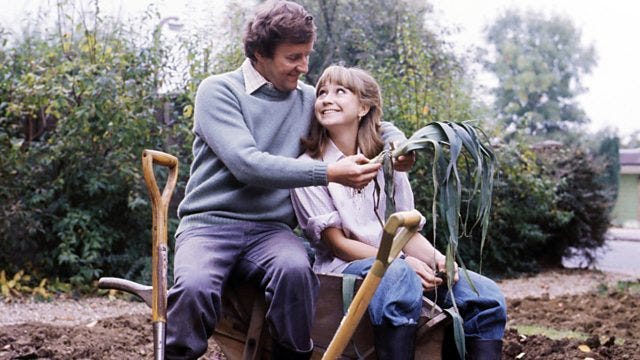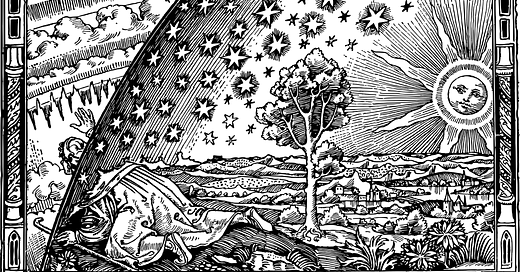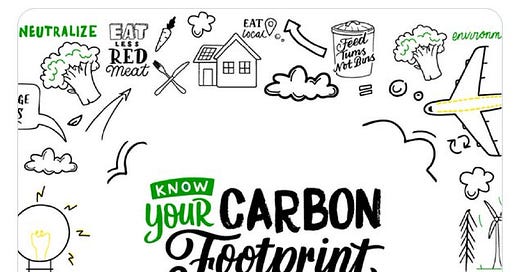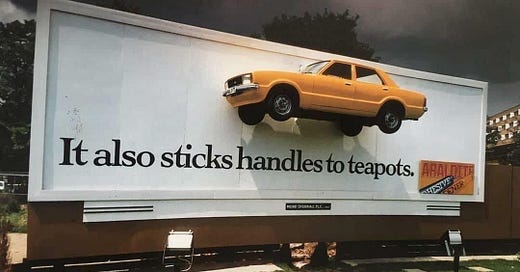

Discover more from Oxymoron
During my school holidays as a teenager in the 90s, I used to love watching re-runs of the old BBC sitcom ‘The Good Life’ on daytime TV. If you haven't seen it, the main character is a chap called Tom who worked as a draughtsman in an engineering company. Disillusioned with the drudgery of corporate life, he one day has an epiphany of how to escape the rat race. He excitedly runs home to his wife and announces his idea - “Self-sufficiency, Barbara!”
His vision is that if they could grow their own food as well as make and repair the things they need, then they wouldn't need money and he could escape from his soul destroying job. Barbara, being both loving and slightly mad, somehow agrees to give it a go and so they embark together on an adventure to try and live a self-sufficient life in the suburban town of Surbiton in southwest London.
Looking back, it's quite amusing just how closely it parallels my own life. I too am called Tom. I grew up not far from Surbiton. I started my career as an engineering designer, and I persuaded my Barbara, my wife Vineeta, to join me on a slightly mad journey to escape the conventional world of employment and create a more self-sufficient life.
Like Tom and Barbara, we dreamed of a future where we would grow our own food, generate our own energy and collect our own water, but unlike Tom and Barbara we accepted that realistically we would still need to earn money. In the spirit of self-sufficiency, we would do that by starting our own business. That business is Wholegrain Digital.
You might think this pursuit of self-sufficiency and the creation of our own business are a little contradictory. I think it's fair to say that most people think of self-sufficiency as the act of living a simple life in harmony with nature, in contrast with entrepreneurship which is often seen as the very essence of capitalism. And this is where we find an interesting paradox.
These two things seem like they live at opposite ends of the spectrum, but as I look back, I think that entrepreneurship has been largely misunderstood. Yes, there are entrepreneurs who are motivated purely by the materialistic rewards of money, power and status, but there are many for whom this is not the case. I know lots of business founders and owners whose motivations are more aligned with Tom and Barbara's aspiration for freedom and independence than with any megalomaniac dreams. And when we look at the origin of the word “entrepreneur” we find that this makes sense, because it simply means “to undertake” a project. Self-sufficiency therefore, is itself a form of entrepreneurship and this fact is rooted deep at the heart of my long held belief in the idea of sustainable business.
In his incredible book ‘Weapons of Mass Instruction’, John Taylor Gatto presents the idea that self-sufficiency is a mindset more than any activity. A mindset of seeing yourself and those around you as producers rather than consumers. A mindset of striving for independence rather than dependence. He states that people in “early federal America held the ideal of self-sufficiency as the very pinnacle of achievement. The ideal household aimed to produce its own food, clothing, shelter, entertainment, transportation, medical care, education, childcare, and social security”.
In contrast, he asserts that modern society is now “composed of persons who cannot design, build, repair or even operate most of the devices upon which their lives depend” and that most things are in truth “literally unintelligible to them”. As a result, us modern people must “accept a great number of things on faith” as our “way of understanding is now basically religious, rather than scientific”.
This is a very uncomfortable perspective for those of us who pride ourselves on living in the “age of science” and like to think that we have a pretty good grasp of how the world works. But in fact, most of us have far less true understanding of the world than people from societies of the past. This is, of course, particularly true of indigenous tribes, past and present, who are often referred to as primitive and yet have an incredibly deep understanding of the world. An understanding that enables them to be self-sufficient within their communities and live as a harmonious part of nature.
By comparison, business entrepreneurship is of course a very crude form of self-sufficiency, but I do believe that it is a practical way of starting to move our mindsets in the right direction, as part of a broader cultural shift in which we seek to deepen our own understanding of the world and to develop our own creative solutions and practical skills in all aspects of life.
Having said all of this, I can say from experience that self-sufficiency is far more difficult than it sounds. Just as Tom and Barbara found in their pursuit of The Good Life, Vineeta and I have also found out how little we know. The mere attempt to be self-sufficient in anything quickly teaches us just how interdependent we really are. Vineeta and I produce a tiny fraction of our own food, we still need the national grid to fill the gaps in our intermittent solar energy supply and we know that the rainwater collected from our roof doesn't last long in a drought. Likewise in our business, we know just how much we rely on our team, our clients and our partners.
Perhaps then the red herring in self-sufficiency is the term “self”. What we should be aspiring towards is not to be truly independent and live alone in the woods, but to develop personal capability and community sufficiency, in which we contribute to a shared effort to build resilient, caring communities whose focus is on production to meet needs, rather than consumption to meet wants.
I believe that entrepreneurship (and intrapreneurship) within organisations, and particularly the creation of small enterprises, can be part of a more healthy model for society in which we are more fulfilled, connected, capable human beings who live more in tune with our natural environment.
This has never been more important. We are now at a point in history when we are not only dependent on physical systems like power grids, global food supply chains and sewage systems, but also mentally dependent on search engines, sat nav, calendar notifications, grammar checkers, meal kits and heart rate monitors. The rise of AI will exponentially accelerate this trend. If we're not careful, we'll go from being the most intelligent and resilient species on Earth to a populace of computer controlled zombies who don't truly know how to do anything.
The time is now to reignite a shared passion for self-sufficiency and to find opportunities to “undertake” it wherever we can - in our work, in our gardens, in our homes and in our communities. This is how we'll create a resilient foundation from which to build a positive future in uncertain times.
As a final note to wrap up this week’s post, those of you following my activity here on Substack will have noticed a bizarre contradiction, in that I have written this article in the same week that I am launching my collaborative AI project, Humanitas et Machina: Hope for the Modern Epoch. I am fully aware of the irony and hope you’ll excuse me in undertaking this experiment with AI in a contained space. If you’re curious, hop on over there, follow along and share your thoughts.

















Thanks Tom for this. The freedom and independence brought by entrepreneurship, or in my case, freelancing, is what allows me to dream bigger in terms of self-sufficiency : ability to live almost anywhere, to decrease my work time to be able to do other activities, to learn more down-to-earth new skills, etc.